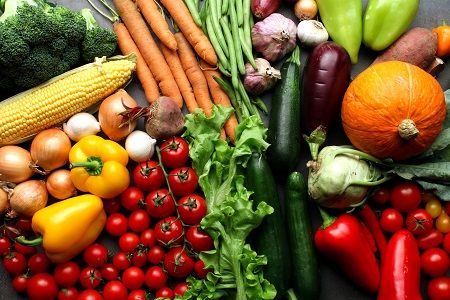Article
Vegetarian Diet, Increased B12 Intake Linked to Lower Stroke Risk
Author(s):
Analysis of more than 13k patients from Taiwan found a vegetarian diet was linked to a lower risk of incident stroke events later in life.

New data from an analysis of patients in Taiwan is revealing more about the impact of dietary vitamin B12 intake on incidence of stroke later in life.
Results of the analysis, which included more than 13,000 individuals, indicated patients who adhered to a vegetarian diet had lower serum vitamin B12 and high folate and homocysteine than nonvegetarians and this translated to a decreased risk of ischemic and hemorrhagic strokes.
"Overall, our study found that a vegetarian diet was beneficial and reduced the risk of ischemic stroke even after adjusting for known risk factors like blood pressure, blood glucose levels and fats in the blood," said study investigator Chin-Lon Lin, MD, of Tzu Chi University in Hualien, Taiwan, in a statement. “This could mean that perhaps there is some other protective mechanism that may protecting those who eat a vegetarian diet from stroke."
Using cohorts from the Tzu Chi Health Study and the Tzu Chi Vegetarian Study, Lin and a team of colleagues sought to retrospectively examine whether a vegetarian diet would affect stroke incidence and whether this risk could be attenuated by modified vitamin B12 intake. From the first and second cohorts, investigators identified 5050 and 8302 individuals for inclusion in the current study.
Investigators noted a subgroup analysis was performed on 1528 participants from the Tzu Chi Health Study who had measurements for serum homocysteine, vitamin B12, and folate.
All patients included had completed a food-frequency questionnaire with at least 57 questions—vegetarian status was defined as the avoidance of meat and fish. Additional inclusion criteria included being free of history of stroke, being at least 20 years old, and had to include information on covariates including smoking, drinking, and other factors.
Adjusted Cox regression models were used to assess the associations between dietary habits and the incidence of stroke. Investigators pointed out the analysis for the Tzu Chi Health Study cohort were adjusted for sex, education, smoking, alcohol, physical actives, BMI, hypertension, diabetes, dyslipidemia, and ischemic heart diseases—the second cohort was only adjusted for hypertension, diabetes, dyslipidemia, and ischemic heart diseases.
Analysis of patients' dietary habits revealed vegetarians had lower serum B12 and higher folate and homocysteine than nonvegetarians. Additionally, investigators pointed out vegetarians consumed more soy, vegetables, and nuts than nonvegetarians.
In the Tzu Chi Health Study cohort, a total of 54 incidence stroke events occurred in 30,797 person-years of follow-up. Analyses revealed stroke incidence in vegetarians was lower than in nonvegetarians (1.16 [0.62—2.15] versus 1.99 [1.48–2.67] per 1,000 person-years) and that vegetarians had about half the risk of overall stroke.
In the Tzu Chi Vegetarian Study cohort, 121 stroke events occurred in 76,797 person-years of follow-up. Similarly to the other cohort, analyses indicated stroke incidence in vegetarians was lower than in nonvegetarians (0.95 [95% CI, 0.64—1.42] versus 1.88 [95% CI, 1.54–2.29] per 1,000 person-years). Investigators noted hypertension appeared to be an independent risk factor in this cohort (HR, 1.82; 95% CI, 1.17–2.85).
Results of the subgroup analysis revealed an inverse association between a vegetarian diet and lower overall stroke risk in the subgroup with inadequate vitamin B12 intake but not in those with inadequate intake. Additionally, vegetarians with adequate vitamin B12 intake consumed more animal protein and were more likely to take vitamin B12 supplements than those with inadequate vitamin B12 intake.
Lin and colleagues noted multiple limitations within their study. Limitations included only assessing diet at baseline, the generalizability of findings might be limited to a population that abstains from cigarettes and alcohol, and the size of the sample makes it difficult to evaluate associations between a vegetarian diet and stroke subtypes.
This study, “Vegetarian diet and incidence of total, ischemic, and hemorrhagic stroke in 2 cohorts in Taiwan,” is published in Neurology.




